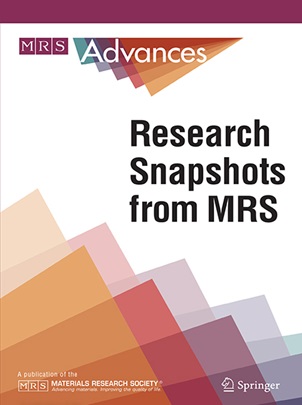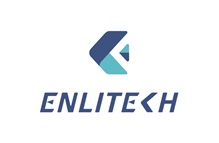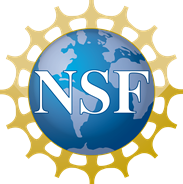
Event Supporters
2023 MRS Fall Meeting
Our 2023 MRS Fall Meeting and Exhibit took place November 26 – December 1 in Boston, Massachusetts and was followed by three days of exclusive virtual content December 5-7.
The world's foremost international scientific gathering for materials research, the MRS Fall Meeting showcases leading interdisciplinary research in both fundamental and applied areas presented by scientists around the world.
Our Fall Meeting capped a milestone year as MRS celebrated it's 50th year of advancing materials research and the careers of Members driving innovation in the field.
What's Next?
MRS approached its 50th Anniversary laser-focused on the innovation that lies ahead. As this ever-evolving field continues to progress, so does MRS, staying at the forefront of materials research as it further develops and expands. In 2023—as we honored the past, celebrated the present and looked toward the future—our priority remains: to promote materials research and innovation and provide every opportunity for researchers to thrive. From definitive technical journals to Meeting symposia led by our extraordinary global community, delivering the content and connections materials researchers need to achieve breakthroughs has pushed us forward as a field for 50 years—and it will sustain us for 50 more.
2023 Fall Meeting Highlights
MRS TV is back in Boston for the 50th anniversary of the Materials Research Society! In this episode, we're highlighting MRS's collaborations and partnerships across the globe.
Featured segments:
- The Very Best of the 2023 MRS Fall Meeting
- Celebrating 50 Years of MRS | Sabrina Sartori
- Collaboration Across Continents | MRS & AMRS
Plus, we're visiting some of the world's top institutions in materials research: Corrosion Center at Qatar Environment and Energy Research Institute, Hamad Bin Khalifa University The Coating Technologies Group at Empa.
Symposium Topics
DS01—Accelerating Materials Research with AI-Assisted Experimentation
DS02—Automated Experimentation with Synchrotrons, Neutrons and Microscopes
DS03—Emerging Challenges and Opportunities in Materials by Design
DS04—Accelerating Data-Driven Materials Research for Energy Applications
DS05—Polymer Informatics—Polymer Research with Classical and Data-Driven Informatics
DS06—Integrating Machine Learning with Simulations for Accelerated Materials Modeling
EL01—Defects and Strain in Two-Dimensional Materials
EL02—Emerging Ultrafast Optical and Structural Probes in Materials Science
EL03—Ferroic Materials and Heterostructures
EL04—Materials and Devices for Neuromorphic Electronics and Bio-interfaces
EL06—Metamaterials Innovation in Photonics, Acoustics, Fluidics and Thermal Sciences
EL07—1D and 2D Materials—Electronic Properties and Device Applications
EL09—2Ds Go Hybrid—Properties and Applications of Dimensionally Hybrid Systems
EL10—Understanding the Inorganic-Organic Interface—The Case of Colloidal Nanoscale Materials
EL11—Ultra-Wide Bandgap Materials, Devices and Applications
EL13—Multiferroics and Magnetoelectrics
EL14—Diamond Electronics, Devices and Sensors
EL15—Chiral Materials—New Structures and Properties
EL16—Carrier-Dopant Interactions in Organic Semiconductors—From Fundamentals to Applications
EL17—Synthesis, Properties and Applications of 2D MXenes
EL18—Fundamentals of Mixed Ionic-Electronic Conductors
EL19—Atomically-Thin 2D Materials and Heterostructures—Synthesis, Properties and Applications
EN01—Energy Solutions for Unconventional Applications
EN02—Solid-State Batteries—Materials, Processes, Characterizations and Scale-up
EN03—Biodegradable, Resorbable and Sustainable Materials
EN04—Decoding Halide Perovskites—Advanced Characterization Towards Optimization and Discovery
EN05—Halide Perovskites—From Fundamentals to Applications
EN06—Emerging Energy Applications of Low-Dimensional Layered and Crystalline Materials
EN07—Emerging Electrocatalytic Materials and Devices for Clean Energy and Environmental Applications
EN08—Materials for Emerging Electrochemical Separations
EN09—Lithium-Ion Battery Recycling and Reuse
EN10—From Single Atom to Device—Interfaces Under Electrochemical Conditions
SB01—Engineering Future Food Materials—Ingredients, Processes and Fabrication
SB02—Biomimetic Organic and Hybrid Frameworks for Imaging, Encapsulation and Delivery
SB04—Conducting and Functional Hydrogels—From Materials to Devices
SB05—Biohybrid and Soft Functional Interfaces
SB06—Experimental and Computational Advances in Biomolecular Electronics
SB07—Translational Neuroelectronic Materials and Devices for Bioelectronic Medicine
SB08—Bio-Based Polymers and Composites for Sustainable Manufacturing
SB09—Biomaterials for Regenerative Engineering
SB11—Wearable and Implantable Neuro- and Bio-Electronics with 2D Materials
SF01—Additive Manufacturing—From Material Design to Emerging Applications
SF03—Inorganic Materials to Overcome the Challenges of Tomorrow
SF04—Expanding the Frontiers of Plasma Technology in Materials Science and Engineering
SF05—Infrared Materials and Devices for Thermal Radiation Control
SF06—From Robotic Towards Autonomous Materials
SF07—Advances in Reactive Materials Engineering
SF08—Design and Behavior of Architectured Materials for Extreme Environments
Meeting Chairs
-

King Abdullah University of Science and Technology
-

Purdue University
-

University of Grenoble Alpes
-

University at Buffalo
-

Northwestern University
Call for Papers
Scientific Basis for Nuclear Waste Management XLVIII: Towards Effective Nuclear Waste Management - Progress and Challenges
This special issue focuses on the science and technology of nuclear waste management, emphasizing performance and key challenges. It assesses nuclear waste forms and their compatibility with geological disposal, explores waste processing technologies, and discusses state-of-the-art development of sorbent materials for radionuclide capture.





-2.tmb-mtg_rel_ad.png?Culture=en&sfvrsn=a4240c09_1)


























